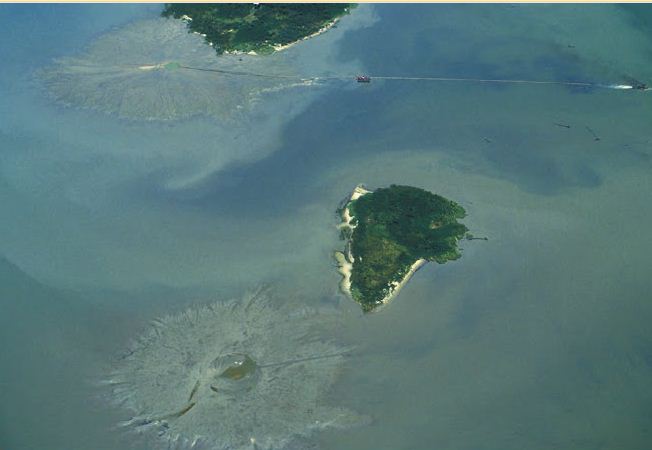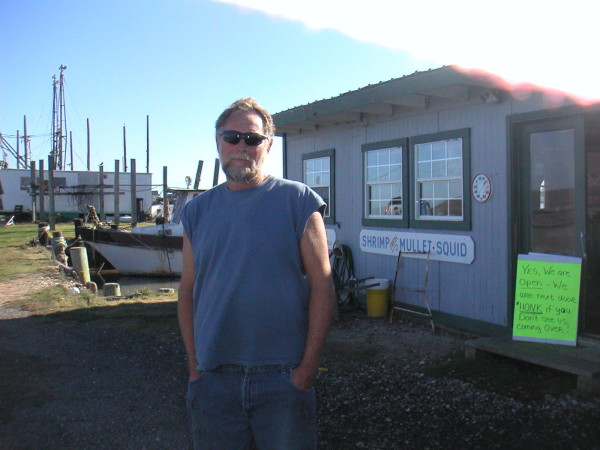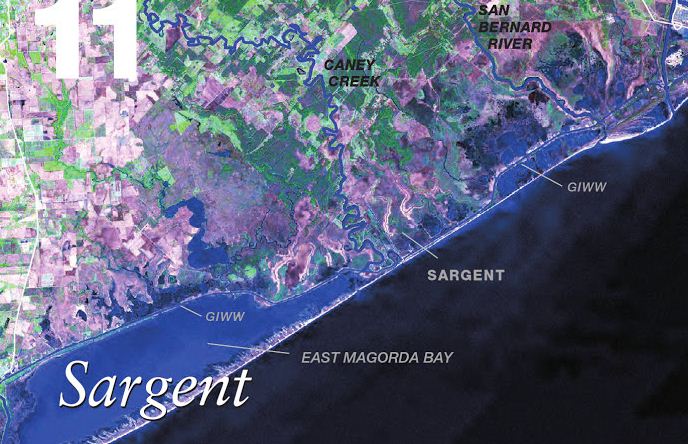Heros and Heroines of Sargent
The Heroes and Heroines of Sargent.
These articles will be about people Heroes and Heroines that make a difference and improve our East Matagorda Bay and our Greater Sargent Ecosystem.
Roy Tipps strode into the Meeting and many of the people attending were drinking beer. He approached the front table where the committee was sitting and dumped some Shrimp and live crabs on the Table.“This is our Bay Gentleman”. Then he produced and bucket of Dredge Mud. He dumped the mud on top of the Shrimp and Crabs. “This is what they are doing to our Bay”. As he dumped the mud the Rowdy crowd went crazy and cheered”. The people from the Government Army Corp of Engineers grew uneasy.
We know in Sargent that our bay Matagorda is one of the cleanest bays along the Texas Coast. It has but few launch areas for Boats, a few roads and virtually no industrial production in and around the Bay. Some of the Bay has turbid waters where it meet the Gulf from time to time.. Mitchell’s Cut is a Saltwater gateway into East Matagorda Bay from the Gulf of Mexico and connects into Caney Creek the Gulf Intercoatal Waterway and the Sargent Canals. If you drive your boat a few miles into the center of bay the water color turns and wonderful blue Green. I can remember the first time I traversed the Bay’s fully intact and unspoiled natural grass beds that border the South Shore line. As you move over the Grass Beds they change from time to time. The terrain turns to Oysters and shell. It was chocked full of nesting areas for fish. I was very excited and thrilled because it was still wilderness.
Our Green Bay grass and clean water about 2 feet deep with sand and shell It was and is still is a beautiful sight. Our bay and many of the Bays in Texas are now much cleaner than they were 40 years ago. There are many environmental activist who made a change and have improved our water quality. Our residents Mural and Roy Tipps were some of the most important people of Sargent Texas. They started their journey back in 1983. Our Roy Tipps and his wife Muriel and the people of Sargent have had a huge impact on our Bay and Galveston Bay and the management of the entire upper bay system of Texas. Much of the Bay management and island building for bird habitat and fish were fostered by the Tipps back in 1984. 
Mural and Roy Tipps are special people on the Texas Coast. They run a Shrimp Boat and Bait Camp on the Gulf intracoastal near the Sargent Swing Bridge. Muriel also a a Realtor. If you know your way to Sargent. You know there is one road in and the same road to get out. The swing bridge is the last old time Pontoon Bridge that connects Sargent Island across the Intracoastal. If you buy some of their shrimp they let you fish off their side dock on the Gulf Intracoastal. They are nice people. They and their family have lived there for years. They are getting a little older now than they were in 1983 and their children have all grown up. But they still exude the old Time Sargent Charm. Their Bait camp is right near the swing Bridge. Right near the Gulf of Mexico Right on the Gulf Intracoastal Canal.
The GIWW waterway is a thousand mile canal that the United States Government built back in 1800’s. It is a sheltered waterway that actually goes around most of the exterior of Coastal United States. It allows Ocean going barges and small ships to traverse the US without going out into open ocean. In Texas barges of Gravel from Mexico,Chemicals and petrochemicals are moving up and down the coast day and night on this waterway. It is a great engineering marvel.
The GIWW Channel needs to be maintained by dredging because fresh water from Rivers and bays drop silt and clog up the channel. It needs to be dredged so ships can pass.. Millions of dollars are spent to have the Army Corp of Engineers dredge it and keep it open. When you dredge it you suck up old dirty dead mud and it is called spoil. . Yes (spoil) is mud filled with organic and inorganic junk some toxic.
Years ago (Roy Boy) Tipps and Muriel were excited when they chose a life as a Bay Water-men. They lived and worked on the GIWW at East Matagorda Bay. But soon as time went on they would watch the Army Corp dredge and then just dump Mud Dredge material the spoil in the adjacent Bay. Why would they dump it over prime fishing, shrimping and Oyster Beds? So once a year the Dredger’s would come by and start pumping out the mud from the GIWW. Once a year they would pump the mud and they would dump it in the Bay.
Roy (Boy) works the Oyster reefs and also owned a shrimp boat. Remember that East Matagorda Bay has some of the finest tasting wild Oysters in the US. Parts of the Oyster Reefs are adjacent to the GIIW. Army Corp dredges would pump out the Spoil and dump in right into the the Bay. Muriel and Roy knew this was wrong. Pumping Mud spoil over live wild Oyster Reefs was stupid and wrong.
Muriel and Roy tried to contact the Army Corp and put their case before them. They wanted the policy of dumping in the bay stopped. Nobody listened.
So Muriel started working the phone and organized many of the shrimpers in and around Sargent. She then reached out to many of the sport fisherman who lived and fished Sargent. She contacted the Texas Department of Wildlife and worked with them. They agreed with Mural and Roy. She was forming a coalition of people who wanted change.
The Army Corp of Engineers still would not change their dumping procedure.
It took guts and fortitude to stand up to the power of The ARMY Corp. But they loved their Baby East Matagorda Bay and they loved Sargent. They moved forward.
Muriel called on Rice University Professor for help. She called Jim Blackburn the best environmental lawyer in the state of Texas. “Mr. Blackburn they are killing our bay! The people of Sargent want to do something about this”, vowed Mural. “We don’t have a lot of money but we will do what we can to raise enough money to go to court”. Muriel went on from that day to represent the people of Sargent, shrimpers, Oyster men to win the case against the Army Corp of Engineers and to this day The Corp has changed procedures in how and what they now do with the Spoil when they are dredging the Gulf Intracoastal Waterway..
In Court Jim Blackburn represented Muriel and Roy and the sport and commercial fisherman of Sargent. They were joined by Texas Parks and Wildlife. In that hearing Judge Hugh Gibson ruled that the Dredging could continue but that the Corp had to changed the way they handled the mud spoil in a way that would not hurt the environment. The Corp of Engineers agreed to use the spoil and create plan to improve the environment using the Dredge mud Materials.
Recent Examples of Using the Army Corps Approach to Dredge Mud
Citations.
Thanks
Jim Blackburn: The Book of Texas Bays
Lessons Learned from Coastal Beneficial Use Army Corp of Engineers

